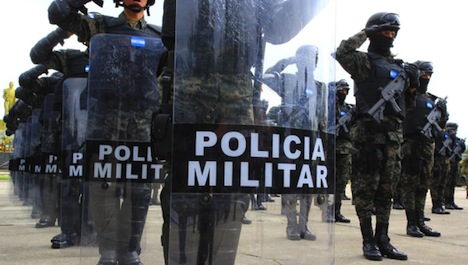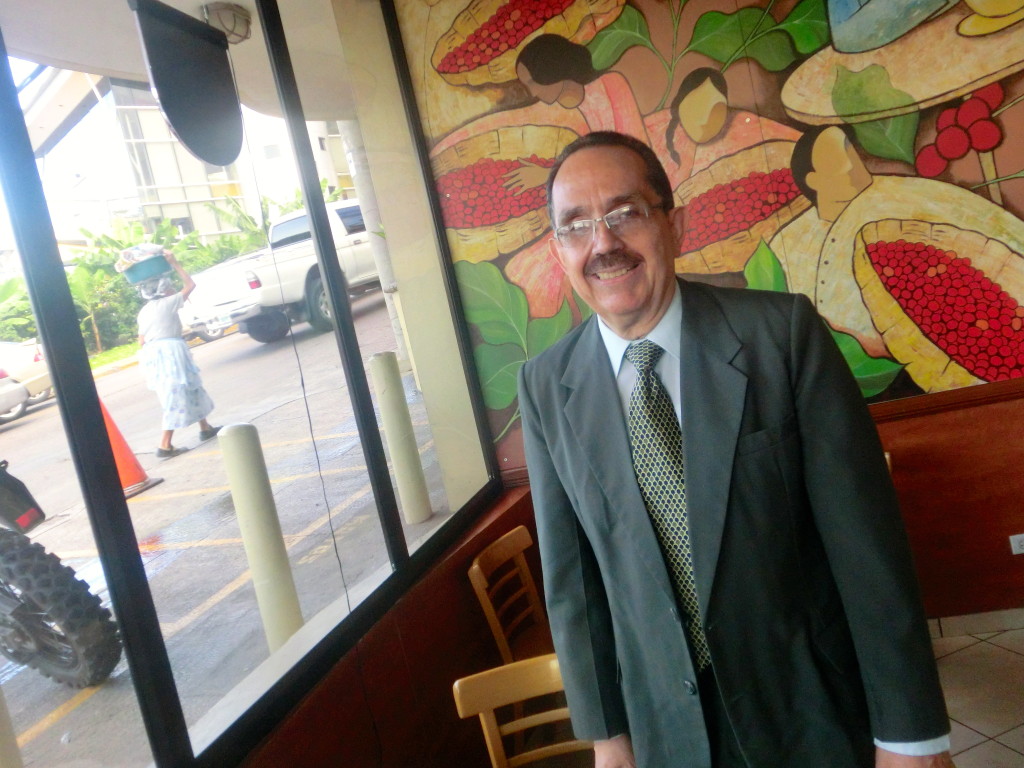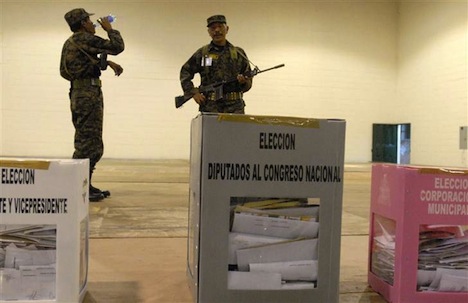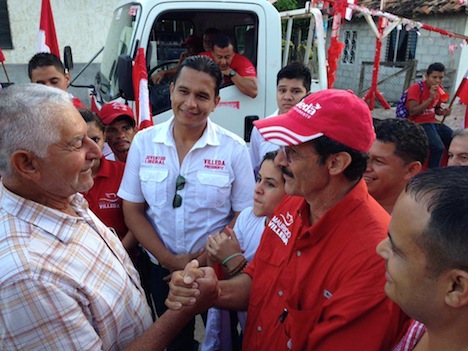I write for the Miami Herald/McClatchy today about the advent of Honduras’s new policia militar (military police) force, the historical and cultural context of military police in Honduras and the consequences for Honduras in its fight for greater security, for Central America and for US foreign policy in the region.![]()
Juan Orlando Hernández, the candidate of the conservative Partido Nacional (PN, National Party) and the president of Honduras’s Congreso Nacional (National Congress), spearheaded the legislative effort to create the military police in August. The first thousand police deployed earlier this autumn, but the force is at the heart of Hernández’s campaign — he promises to put a ‘soldier on every corner’ and that he’ll do ‘whatever it takes’ (¡voy hacer lo que tenga que hacer!) to straighten out Honduras’s violent crime problem.
But there are plenty of Hondurans who worry that ‘whatever it takes’ could mean a slide backwards with respect to human rights:
“Creating a military police is a step backward,” said Leo Valladares, a former human rights commissioner in Honduras and a member of the Inter-American Commission on Human Rights. “There’s no guarantee that this newly created military police force will obey civil interests. It’s possible that once they’re in command, they will go into negotiations with the drug dealers.”
Though Honduras returned to regular democratic elections in 1981, it wasn’t until 1998 that the military came fully under civilian control and a civilian police force began to take shape. Still, civil police are poorly paid, and many Hondurans say they fear the police as much, if not more, as the fearsome street gangs and drug traffickers. Hernandez hasn’t dispelled the notion that protecting human rights and upholding the rule of law is less important to him that battling runaway crime.
Hernandez led Congress in December in a vote to depose four judges on Honduras’ top court who’d ruled that the Lobo Sosa administration’s effort to purge the police force of corruption was unconstitutional. German Leitzelar, a congressman and former labor minister in the National Party administration of Ricardo Maduro in the early 2000s, opposed the effort. “The decision to depose the four magistrates had no justification,” Leitzelar said. “It was a technical coup against the democratic system.”
Against that background, some critics worry that Hernández could attempt to take consolidate power to nearly authoritarian levels.
“This is terrifying,” said Dana Frank, a professor of history at the University of California, Santa Cruz told me in an interview last week. “If Juan Orlando wins, by whatever means, it’s going to be even more terrifying and everyone knows that, because the space for democratic opposition is going to get tinier and tinier, and it’s almost closed.”



